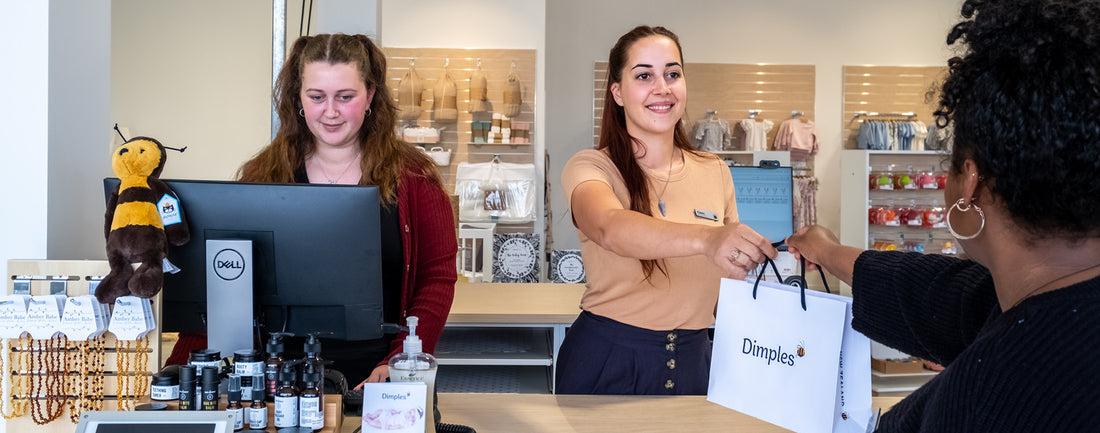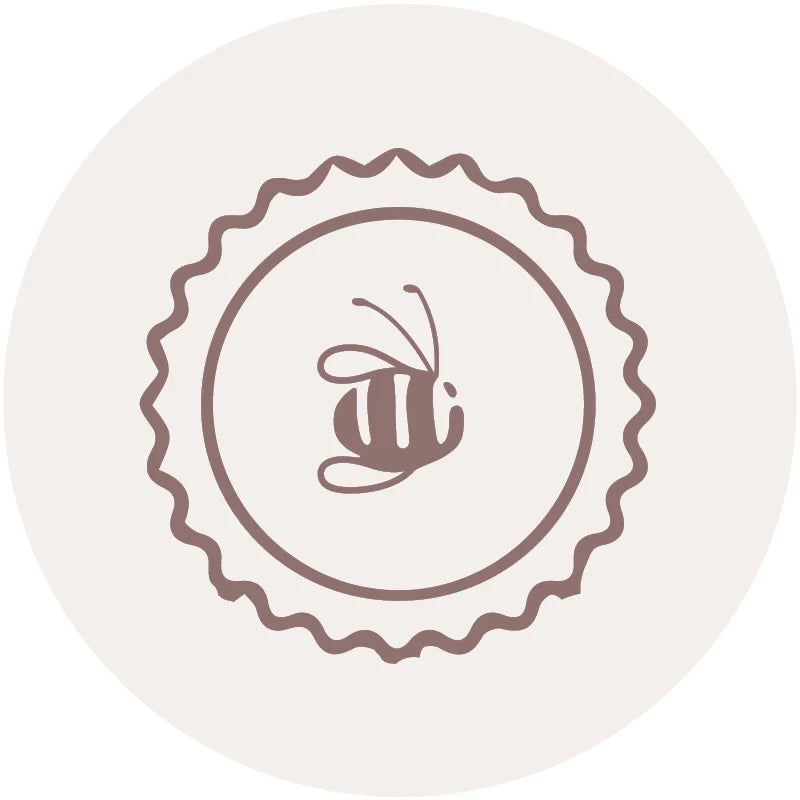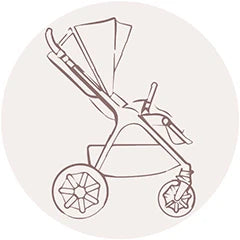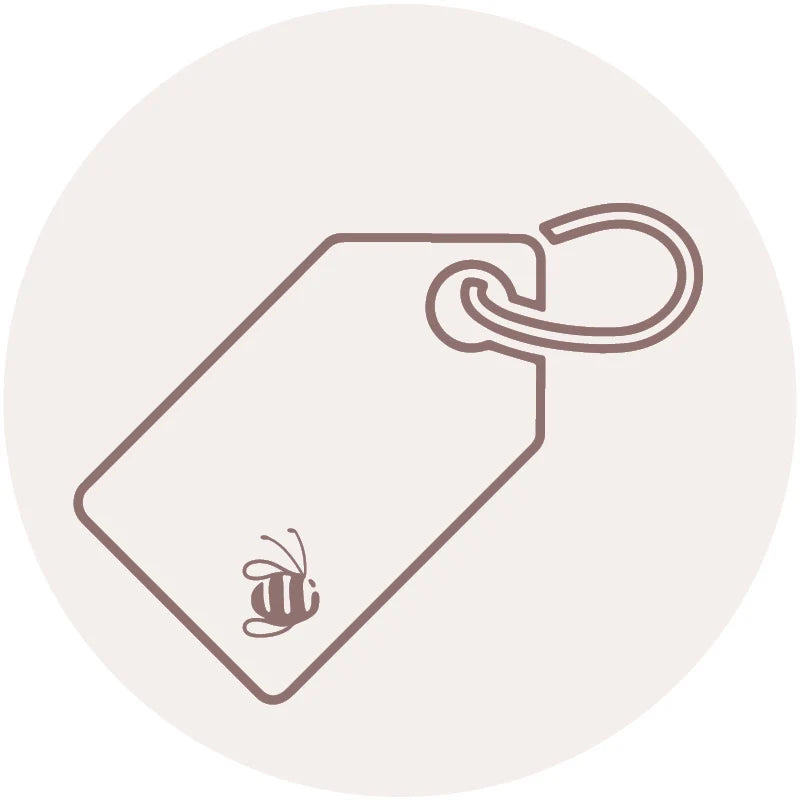Post
Your Guide to Antenatal Classes
At Dimples, we understand that preparing for the arrival of your little one can feel both exciting and overwhelming. That’s why we’ve teamed up with Grace Strange – Midwife and owner/founder of Antenatal Co.
Learn moreYour Pregnancy Food Guide
When you're pregnant, what you eat matters more than ever. We’ve asked Sarah-Jane Simpson, a NZ Registered Dietitian, to break down the key foods to enjoy and the ones to avoid during pregnancy
Learn morePregnancy and the Pelvic Floor: A Physiotherapist’s Guide
Pregnancy and the accompanying hormonal changes can impact your pelvic floor muscles. We’ve asked pelvic health physiotherapist Liz Childs to break down what these important muscles actually do, how pregnancy affects them, and how to make sure they’re working well.
Learn moreMidwife or Obstetrician – Which One?
Finding the Right Maternity Carer for You Once the excitement (or surprise!) of a positive pregnancy test settles in, one of the first big decisions to make isn’t about names or nursery colours – it’s about choosing the person who’ll care for you throughout your pregnancy journey. In New Zealand, this person is called your Lead Maternity Carer (LMC) – and they’ll be by your side during pregnancy, labour, birth, and the early weeks of life with your newborn.Both midwives and obstetricians can act as your LMC, and while they offer many of the same services, there are some key differences to consider. Here’s a gentle guide to help you choose the care that’s right for you and your baby. Midwife or Obstetrician – What’s the Difference? In general, midwives are the experts in normal, low-risk pregnancies, offering continuity of care and a more holistic approach to birth. Obstetricians, on the other hand, are medical doctors who specialise in pregnancy complications and are trained in surgical procedures such as caesareans. Midwife care is free in New Zealand. Obstetric care is private and typically costs between $3,000–$5,000. Obstetricians often take a more clinical approach and may perform scans at every appointment. Midwives focus on natural birth and provide emotional and physical support throughout your labour.If your pregnancy is high-risk – such as a twin pregnancy, gestational diabetes, or a known medical condition – you’ll likely be referred to an obstetrician, either privately or through your local hospital. Can I Use a Hospital-Based Midwife? Yes – if a private obstetrician or community-based midwife doesn’t feel like the right fit, you can also receive care through a hospital-based midwife. These midwives, sometimes referred to as “core midwives,” are employed by public hospitals and provide maternity care within the hospital system. Around 15% of New Zealand mothers choose this model, either from the start or as part of a shared-care arrangement. Hospital-based midwives typically step in when additional support is needed – for example, if complications arise during pregnancy, or if your community LMC is unavailable during labour. In many cases, you’ll receive antenatal care from a combination of professionals, including hospital midwives and obstetricians, with all costs covered through the public system. If you like the idea of continuity but want the reassurance of hospital-based expertise, this model offers a nice balance. It’s a great option for those wanting cost-free care, access to specialist services, and a supportive hospital environment. Things to Think About When Choosing Your LMC 1. How Often Do You Want to See Your Baby? If regular reassurance is important to you, you may prefer the more frequent ultrasounds offered by many obstetricians. Midwives track baby’s growth by feeling your bump and will refer you for routine scans at key stages. 2. Your Preferences Around Pain Relief If you’re keen on trying unmedicated birth methods like water, massage or movement, a midwife may be more aligned with your approach. Midwives often focus on natural techniques, while obstetricians are more likely to facilitate medical interventions such as epidurals. 3. What’s Your Budget? Having a baby is expensive – and private obstetric care can be a stretch for many families. If you’d rather invest in other baby essentials (like that dream pram or a few months of parental leave), midwifery care may make more sense financially. 4. Where Do You Want to Give Birth? Midwives support a range of birth settings – from hospitals to birth centres to your own home. Obstetricians generally operate within hospitals, and home births aren’t an option under their care. Keep in mind that medical pain relief (like epidurals) is only available in hospital settings. 5. Your Connection Matters Perhaps the most important thing is choosing someone you feel safe and comfortable with. Midwives often spend more time with you during labour and birth, and the relationship can feel more personal. Obstetricians may come and go during labour, sometimes arriving just in time for the final moments. In hospital births, midwives will still be involved – even if you’re under obstetric care. Listen to Your Instincts Like many parenting decisions, choosing the right carer is often about listening to your gut. Do you feel heard? Supported? Understood? That connection matters.Have open conversations early on about your hopes for birth – including where you’d like to deliver, your thoughts on interventions, and how involved you want your carer to be. Most importantly, know that you’re allowed to change your LMC if things don’t feel quite right down the track. This is your journey – and you deserve to feel safe, supported, and confident every step of the way. You can begin your search for a local midwife through Find Your Midwife.
Learn moreTips for Planning a Baby Shower
Planning a Baby Shower? Here’s What to Keep in Mind 🎈🍼 Your little bundle is on the way, and you’re starting to think about planning a baby shower... how exciting! Whether you're organising it yourself or handing the reins to a trusted friend or family member, here are a few practical tips from the team at Dimples to help you get started (and enjoy the process too!). Set the date 🗓️ First things first - let’s lock in a date. Somewhere around the 7-month mark is a great time to host your shower. It gives you a nice buffer before baby arrives, and time afterward to sort through gifts and plan what else you might need. When it comes to timing, think about the style of event you’re going for. Is it a brunch with bubbles? A mid-afternoon tea? Three hours is a good ballpark to aim for — just enough time to relax and celebrate without anyone feeling rushed. Sort the guest list ✉️ There are no rules here — it’s entirely up to you who you’d like to share the day with. It could be a small group of close friends, a wider celebration with extended whānau, or even something co-ed with kids in tow. 💡 Tip: Give guests around five weeks’ notice to RSVP. That way, there’s plenty of time for people to plan (and pick a thoughtful gift!). A fun trend that’s growing in popularity is the Baby-Q — a relaxed afternoon BBQ where friends and family bring a plate and celebrate outdoors with the parents-to-be. Easy, casual, and no balloon arches required. Choose a theme (or don’t!) 🎉 You don’t need to go all out — unless you want to. Soft colours, simple tableware, a few bunches of flowers, and a cake can be all you need to make it feel special. That said, if you’ve been dreaming of a balloon garland or photo wall, go for it! Just keep in mind you’ll be the one packing it down at the end… or enlisting a very helpful friend 😉 Plan your catering 🍰☕️ Food is always a highlight, so think about what your guests might be expecting based on the time of day. A mid-morning gathering could be light and lovely with fresh fruit, muffins, and a hot cuppa. A midday shower might lean more toward grazing boards and savoury bites. If your guest list is small, you might feel happy preparing the food yourself. For a bigger crowd, consider asking a few friends to bring a plate — or treat yourself and hire a caterer so you can relax and enjoy the moment. Gift planning made simple 🎁 One of the loveliest parts of a baby shower is the chance for your people to help you prepare, with practical, beautiful gifts you’ll genuinely use. We recommend making a list of the essentials you’re still needing, and thinking about how you’d like to share that with your guests. Some people prefer a wishlist, while others like to keep it open-ended. 📝 Check out our Dimples Gift Registry — it’s an easy way to select what you need and share it with guests, no awkward asking required. You can also use our baby essentials checklist to make sure you haven’t missed anything. Most importantly… enjoy it! 💛 This is a celebration of you, your baby, and this incredibly special moment in your life. Whether it’s big or small, fancy or casual — surround yourself with people who lift you up, wear something that makes you feel good, and enjoy a slice of cake (or two). You deserve to be celebrated.
Learn moreHealth Tips for Pregnant Mums
Written by Kylie Stowe www.nourishedclinic.co.nz My name is Kylie. I am a mum of four, a Nutrition & Health Coach, and a Mindfulness Teacher.Being a busy mum myself, I’m drawn to nutrition and wellbeing for mums – an area of health that is often undervalued. Over the coming months, I’m really excited to share some practical tips, recipes and personal experiences to help you navigate these beautiful, yet sometimes challenging, times. I’m thankful that the team here at Dimples saw the need to go beyond supplying beautiful baby goods to also nourish and care for our mums. Health Tips for Pregnant Mums Focus on whole, unprocessed, nourishing foods There is a lot of pressure on pregnant mums to eat the ‘perfect diet’. This can be incredibly confusing due to the overwhelming amount of conflicting information out there. You’re not alone if this has been a source of guilt – especially when morning sickness makes eating anything but iceblocks and dry crackers impossible. Just remember, you do what you have to do to get through those early months. Nutrient requirements during pregnancy are higher, and supporting a growing baby can often deplete your own stores. Building meals from whole, unprocessed foods is a great option, as they’re rich in essential nutrients. Heavily processed foods are often low in nutritional value – hence the term “empty calories”. Think: Good quality protein such as free-range or grass-fed meats, seafood, eggs, legumes, nuts, and seeds At least four serves of colourful vegetables and two serves of fruit Whole grains like quinoa, steel-cut oats or brown rice Pasteurised dairy (if tolerated) Healthy fats like extra virgin olive oil and avocado If morning sickness makes meals tricky, smoothies can be a great way to get nutrients in. My go-to was Nuzest’s Clean Lean Protein (a high-quality powder with no fillers), nut butter, banana, berries, greens and almond milk. Hydration is also important. Aim for two glasses of water on waking (we often wake dehydrated), and another two litres throughout the day. After the first trimester, 1–2 cups of pregnancy-safe tea (like Artemis Pregnancy Tea) can also be helpful. If nausea makes hydration hard, try small sips often. Diet alone can’t always meet every nutritional need – a good quality prenatal supplement containing folate, iodine, vitamin D and DHA is a smart addition. Always speak to your LMC or health professional about what’s right for you. Movement is also important – even just a walk outdoors. The fresh air and added vitamin D boost mood, support the immune system and help with joint and fitness health during pregnancy. There are also great prenatal fitness and yoga classes available – these are wonderful for connecting with other mums-to-be. Some of the mums I met through yoga have become lifelong friends and a valuable part of my motherhood support network. I always say: aim for progress, not perfection when it comes to health and nutrition. Recognising that this is an ongoing journey can ease the pressure of trying to get it “just right”. If you’d like to dive deeper into prenatal nutrition, I highly recommend dietitian Lily Nichols’ book Real Food for Pregnancy. It’s full of great information and recipes. Kylie Stowewww.nourishedclinic.co.nz
Learn morePregnancy Pillows: Comfort for You, Your Bump & Beyond
During pregnancy, your body undergoes amazing changes to nurture and make space for your little one. As your pregnancy progresses, you may find it more challenging to get comfortable and restful sleep in preparation for the busy days ahead with your newborn. Weight gain during pregnancy can also put a strain on your joints, causing discomfort in your back, hips, knees, and ankles, making finding a comfortable position even harder. This is where a good pregnancy pillow becomes your best friend, offering the support you need to sleep more soundly and comfortably. Embrace Versatility with the 3-in-1 Buddy Supportive Pregnancy Pillow The Doomoo Buddy pillow offers full-body support, designed to relieve pressure on your hips and spine, whether you prefer sleeping on your side or your back. Its hypoallergenic micro pearl filling adjusts to your body’s shape, providing comfort throughout the night. But it’s not just for pregnancy! Once baby arrives, the Buddy becomes an excellent support for breastfeeding or bottle feeding, making those moments a bit more comfortable. It also serves as a soft cushion for your baby to rest or play on, making it a truly versatile product. For Extra Comfort: Doomoo Comfy Big & Doomoo Maxxy The Doomoo Comfy Big is designed for ultimate relaxation during pregnancy, with soft, supportive filling that allows you to find the perfect position for sleep or lounging. Whether you're supporting your growing bump or using it for added back support, the Comfy Big offers tailored comfort that adjusts to your body’s needs. The Doomoo Maxxy offers a versatile solution for both you and your baby. It’s perfect for sleeping, feeding, or even giving your baby a comfy place to rest and play. Its larger design makes it ideal for more support as your body changes during pregnancy, and it’s just as useful post-pregnancy when baby arrives. For feeding your little one Finally, the Doomoo Soft Feeding Pillow is a must-have for any new parent. Its soft, supportive design provides comfort during breastfeeding and ensures your little one is well-supported while feeding or relaxing. It can also double as a tummy time tool to help prop your baby up, or even a barrier for when they are learning to sit up on their own! We Love Doomoo! Softness and comfort are at the heart of everything Belgium-made brand Doomoo creates. Their products are designed with both you and your baby in mind, providing the perfect balance of support and relaxation. We love them for their thoughtful, high-quality designs that make pregnancy and postpartum life that much easier and more comfortable. They have a fantastic range of products designed to support both your and your baby’s sleep. Check out the full range here or visit us in-store at Dimples.
Learn moreIntroducing Our Virtual Shopping Service
As a busy parent it can be hard to find the time to get out to the shops. Or perhaps you’re in hospital post-birth and realise you need some more essentials in tiny sizes. Of course there’s always the option to shop online, but sometimes that just doesn’t cut it. Perhaps you want to see a product in action, or ask a question, or get advice . . . You can now book in to have a video call with our in-store team. They can show you close ups, give you a demo or help you choose when you’re confused by all the options. It’s the perfect option for busy parents. And we’ve made it easy with an ONLINE BOOKING SYSTEM . Book a Virtual Shopping Appointment Here's why our virtual shopping service is a game-changer: Personalized Assistance: Need help finding the right stroller, cot, or baby monitor for you? Our team of knowledgeable experts can help. Virtual Tours: Explore our store virtually with guided tours led by our experienced staff. From nursery furniture setups to the latest babywear arrivals, our virtual tours give you an immersive shopping experience without leaving your home (or birthing unit). Shop with confidence: Once you've made your selections, you’ll have the peace of mind to buy online. Then you can have your purchase delivered to your door or arrange a Click & Collect. Whether you're a first-time parent or a seasoned pro, we're here to make your parenthood journey a little bit easier. Embrace the convenience of our virtual shopping service and enjoy a stress-free shopping experience like never before.
Learn moreWhat to put in your Hospital Go-Bag
The Big Day – Packing Your Bag for Birth The excitement of packing your maternity bag is such a beautiful moment – folding tiny clothes that will soon dress your little one, imagining the moment you’ll finally hold them in your arms. It’s a magical time, but we know it can also feel overwhelming, especially if it’s your first time. It's hard to know what you'll really need! Here’s the good news: the place you’re giving birth is likely just a short distance away from home. Your partner or family will be able to bring anything you forget, so don’t stress about having everything packed perfectly. A really practical way to prepare is to pack two separate bags – one for labour and postpartum, and one for your baby. When things start moving quickly (as they often do), having your essentials for labour in one place makes it easy to grab and go. Your baby’s bag can stay tucked away until it’s needed later. It’s a simple way to stay calm, organised, and focused on welcoming your little one. 🥰 What to Pack in Your Go Bag This bag should contain everything you’ll want need for both the big day and your recovery afterwards. Keeping it all in one place makes it easier for you and your partner to grab what you need when the time comes. Here are our recommendations, these are not all essential but many women find all of these items have helped them feel cool, calm, and collected, and make their experience a bit more comfortable. We also have a downloadable list here. For your labour and birth: Comfortable clothes for labour – whether that’s your favourite baggy t-shirt, bikini top, or nightie (or even nothing at all!) - wear what makes you feel at ease A pillow from home – comfort is key, and something familiar can help you relax Lip balm to keep your lips hydrated Hair ties or bands to keep your hair out of your face A drink bottle with a sipper top for easy hydration TENS machine or other birth aid if you if you plan to use one – we love Your Birth Weapon Music to create a soothing environment (you could create your own birth playlist!) A quick sugar hit, like jelly snakes or barley sugars, to give you energy when needed, and some high protein snacks for your and your partner like muesli bars, nuts or jerky. Electrolyte drinks are also a great way to help your body hydrate, and provide a bit of a boost. Mobile phone and charger, and a camera if you want to capture special moments For after your birth: Any regular medications you currently take Comfortable clothes and PJs for you to change into once you’ve delivered your little bundle of cuteness. And your dressing gown if you’re a dressing gown gal! Toiletries such as shampoo, soap, toothbrush and toothpaste, your hairbrush – whatever you use everyday Post Birth Care – This Pure Mama Spray is serious lifesaver to help ease any discomfort. Pair it with some postpartum undies and a soothing insert - this is the ultimate combo! A maternity bra – a maternity bra will help make things more comfortable when your milk comes in. Silverettes and Nipple Cream – The Silverettes will protect your nipples between feeding and pumping during the early days of breast feeding while your body is still getting used to the new normal. This Nipple cream by Pure Mama will help soothe discomfort. More snacks Bring a few of your favourite snacks - you'll be doing alot of sitting in those first few days and you'll need to keep your energy up. We also recommend lactation cookies – they are soo delicious and really help to support your milk come in. Two changes of clothes for your partner just in case What to Pack for Baby 🐣 Your baby’s bag should include everything they’ll need during their first few days with you. Here’s what you’ll want to pack: Clothes for baby - Warm onesies, bodysuits, pants, cardigans, socks, beanies, and booties. We’d recommend packing for two days, so three of each item should be perfect. Plus you can’t forget the special going home outfit! 📸 Our Dimples Merino range is perfect for newborns ❤️ Cotton or merino wraps for swaddling and a soft blanket for warmth White noise machine (the YogaSleep Hushh is a great option) to help settle baby Newborn nappies and Water Wipes - make sure you choose gentle products, with no perfume A stretchy wrap for carrying baby if they get unsettled Car seat – make sure it’s installed safely and ready to go home with baby (test it beforehand!) Dimples have a wide range of capsules and carseats available if you have not already purchased one. With everything packed and organised, you’ll feel more relaxed and ready for the big day. Remember, there’s no need to have everything perfect, and you absolutely don’t have to have everything on this list to have a wonderful, positive and beautiful experience! Focus on the amazing journey ahead, and know that you have everything you need for your baby’s arrival. You’ve got this, and we’re here to support you every step of the way.
Learn more













